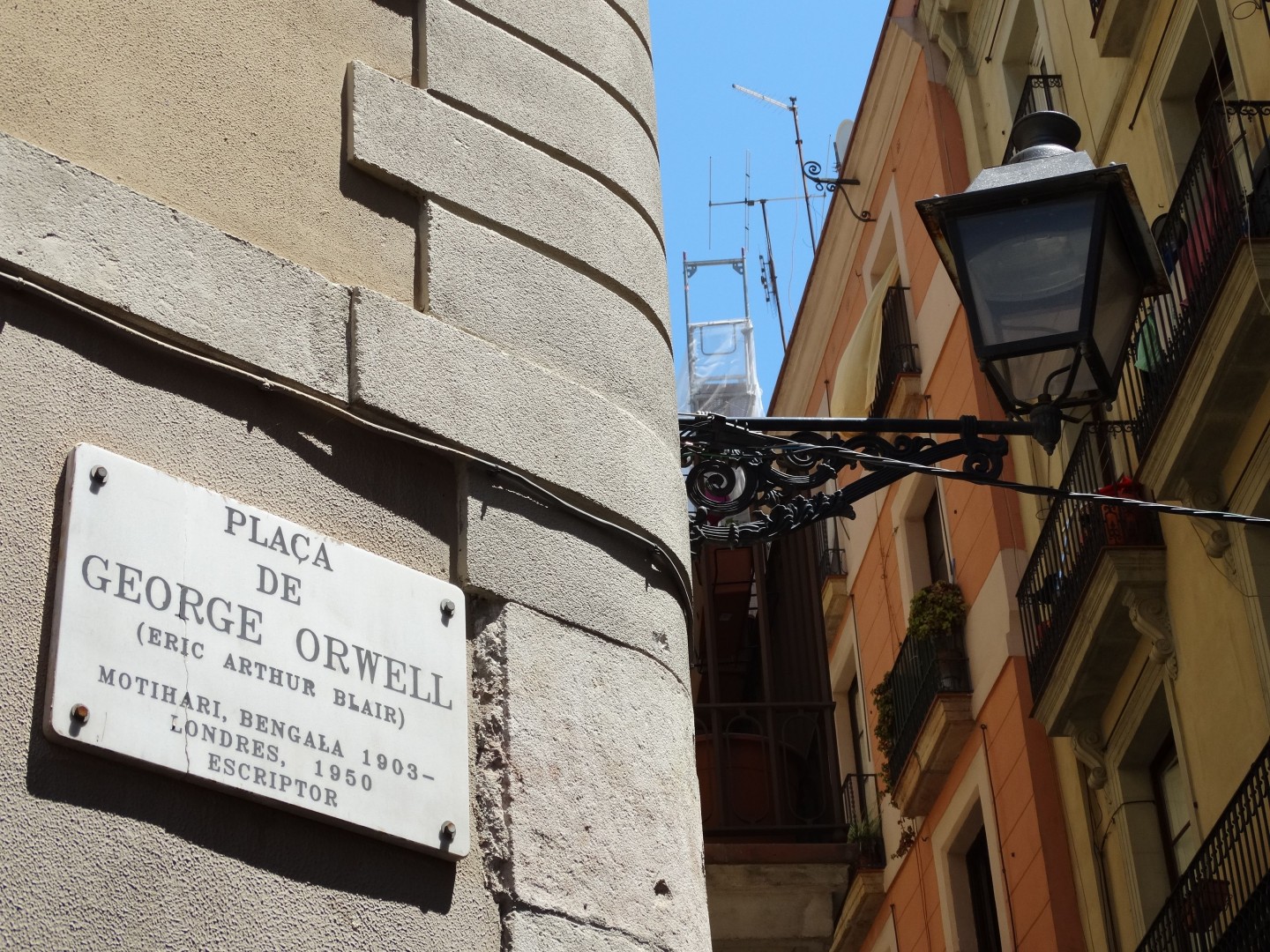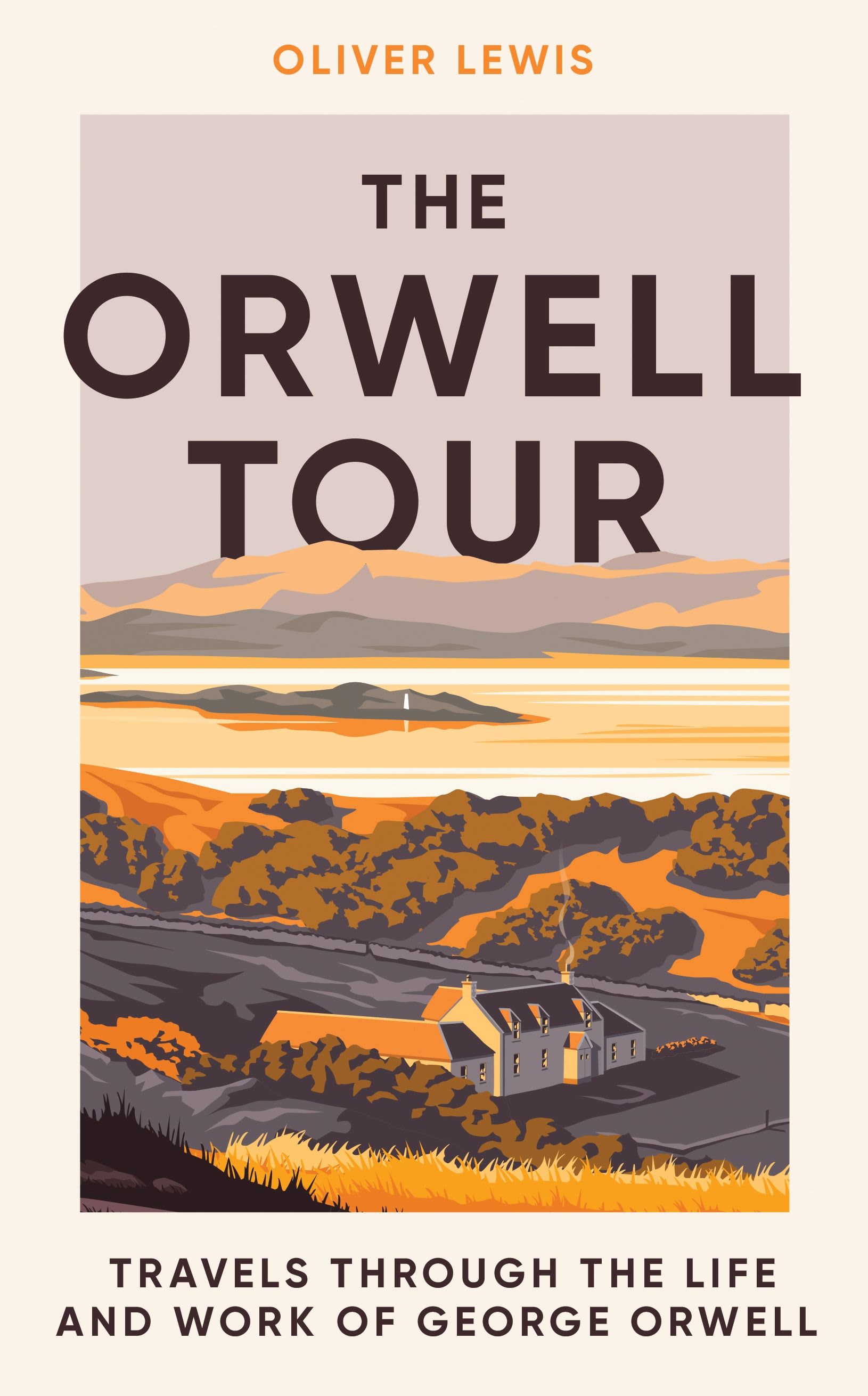George Orwell (born Eric Arthur Blair) is arguably one of the most influential writers of the twentieth century. From poetry and polemical essays to allegorical tales and dystopian novels, his voice still echoes through our cultural worlds today. Oxford born author/academic, Oliver Lewis, has just published his debut book, The Orwell Tour; a travelogue in which he explores Orwell’s work through place. Starting in Bihar, Northern India, the journey takes Lewis across the world before ending up in the Oxfordshire village of Sutton Courtney.
You describe George Orwell as your literary hero – can you tell us why?
The Orwell influence came from my father, whose favourite author was Orwell. He in turn was influenced by my grandfather, who was born in the same year as George Orwell, and whose library included most of his works. Thus, the influence was familial! Copies of his books, biographies of Orwell, and so on were scattered around our home growing up.
Which of his writings resonates most greatly?
My favourite type of his work is actually his most disparate - his Collected Essays. They cover so many different topics there is someone for everyone. However, in terms of his books, Animal Farm is of course the stand out. It can be accessed by so many different levels of reading ability, and not only shows quality writing but teaches the history of Russia as well. Double win.

You travelled across the UK, Europe, to Morocco and India to walk in Orwell’s footsteps, were you able to gain of sense of how he must have experienced these diverse places?
Orwell was very young when he lived in India, but spent five years in Burma when he was in his twenties. I think he developed an affinity for Burma (known as Myanmar today) but this was overshadowed by his eventual loathing for the British Imperial government he worked for; the British Raj, which at that time included Burma. The other places overseas he visited for the most part briefly; he did not take kindly to Marrakesh, and he almost died twice in Catalonia, in Spain.
What do you think would have been the greatest changes since his time?
The biggest changes have really been domestically, here in the UK, rather than overseas. When Orwell was born Britain was the richest and most powerful country in the world, with the largest empire the world had ever known. Britain today is one of the poorer members of the Western World, particularly if London and the Home Counties are removed from the income data. I think Orwell would have been surprised and fascinated by this change, as well as by immigration to Britain, which has changed many British cultural traditions in a relatively short space of time. Abroad, Spain is now almost as rich per person as Britain – inconceivable in the 1930s – and the emergence of a self-confident India vying with a newly industrialised China would like-wise be captivating for him. He did live to see the independence of India, and could not believe British Rule was eventually dismantled so quickly and so easily.
What do you suspect would have stayed the same?
Jura and rural Myanmar have changed very little really, for which he would probably be thankful. Orwell’s house at Katha, in remote northern Myanmar, is still a police house and had a POLICE jeep on the drive when I visited.
Given Orwell’s radicalism, it is surprising to think his resting place is the idyllic village of Sutton Courtenay. He had 46 years in which to make his journey, you did it in three. Were you nonetheless able to make sense of it?
There is always more to find out about any subject and perhaps if I had travelled Orwell’s life over his 46 years I would have an even greater appreciation for him. However, with so many other interests, including for the work of his contemporary-by-age John Steinbeck, I am moving on. Although I did not realise it at the time, the Orwell Tour was really a self-supervised PhD, so my knowledge of Orwell and his life is now really very substantial. George will always be with me.
As an academic, have you had to adapt your style to writing a travelogue?
Yes and no. One of my two DPhil supervisors at Oxford, my tutor in Economics and Management, is American. When I started my doctorate, which is on rail privatisation (so a long way from George Orwell) he taught me to write in the active, rather than passive, voice. So, really my writing style changed the other way around; passive voice for The Orwell Tour and active for academia, where it is encouraged – especially for American audiences.

The Orwell Tour has already received favourable reviews. Are you considering what you will do next?
My first priority is to finish my doctorate, sadly delayed somewhat by the death of my father in December 2021. I have missed being in Oxford, a city I was born in and have known all my life, so that is my next focus. I have many other ideas for writing, but to write well (and research well) really does take time. I had no idea how hard writing a book is, the editing and gestation time especially.
The Orwell Tour by Oliver Lewis is out now (Icon Books), hardback £20.









